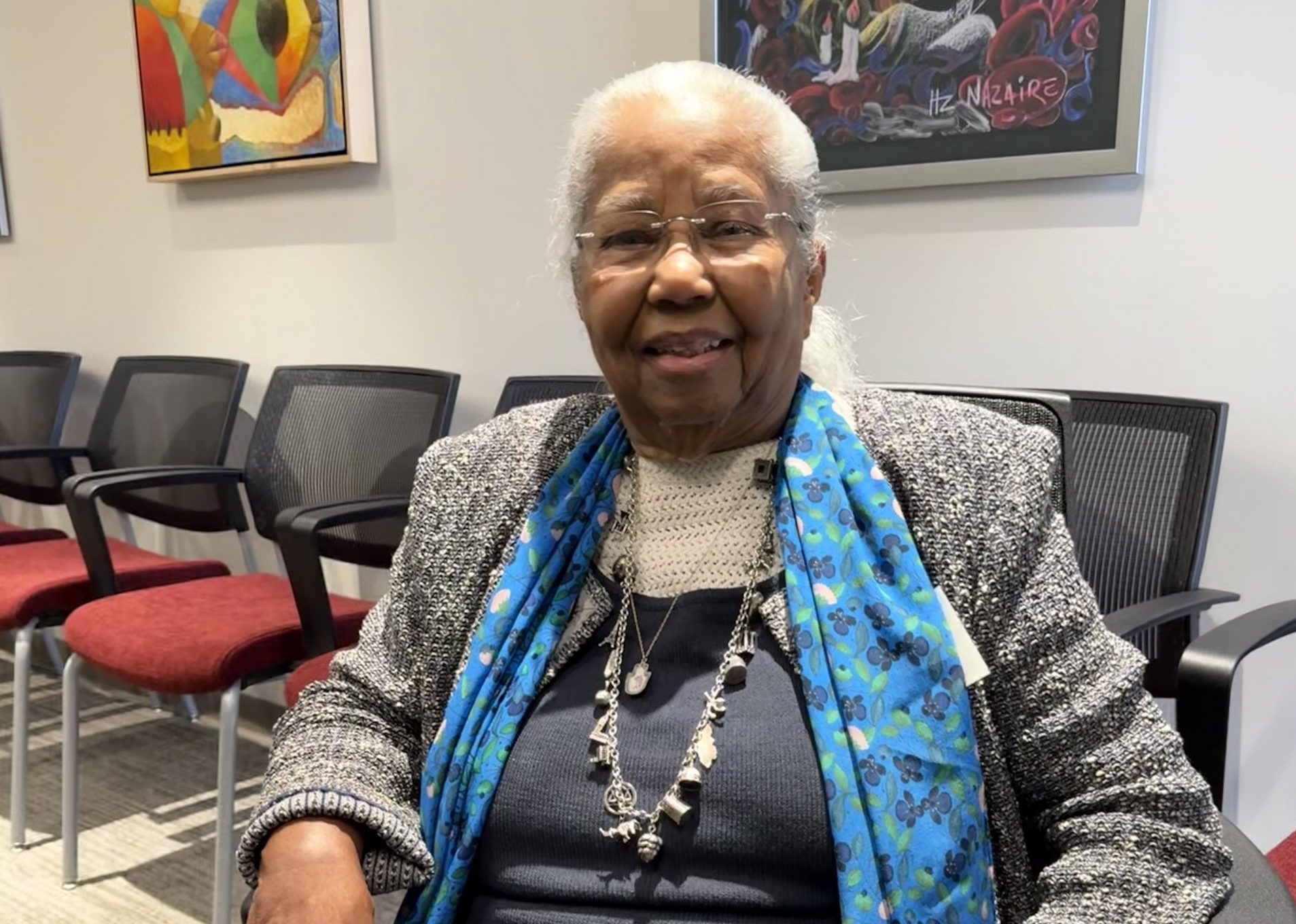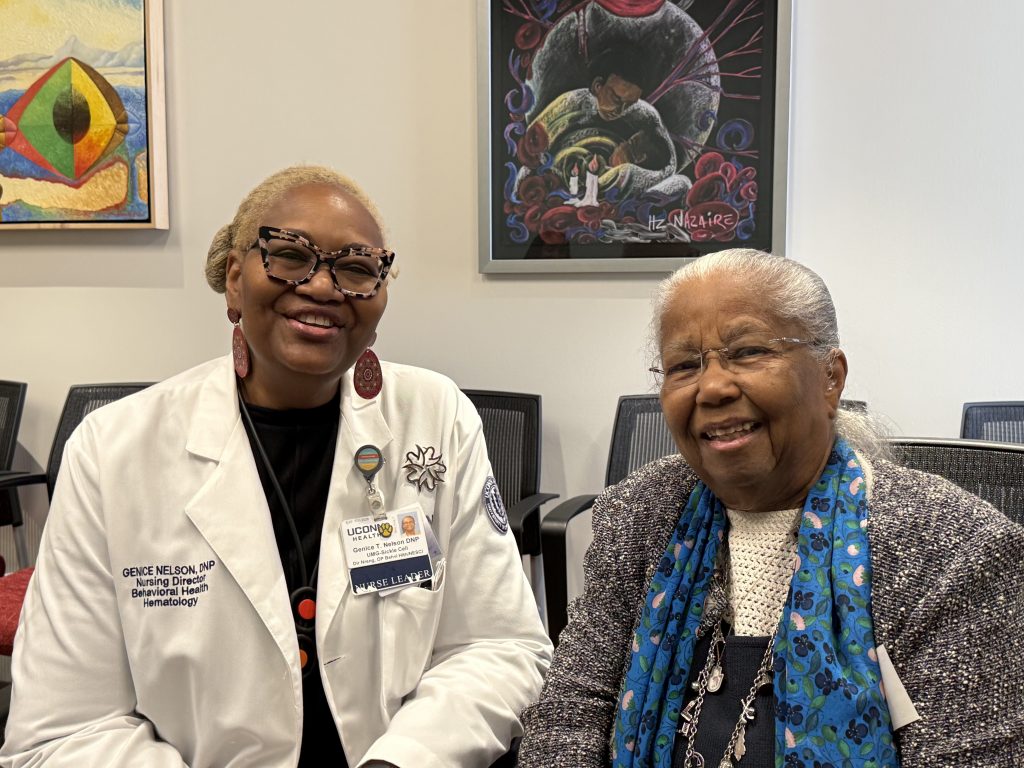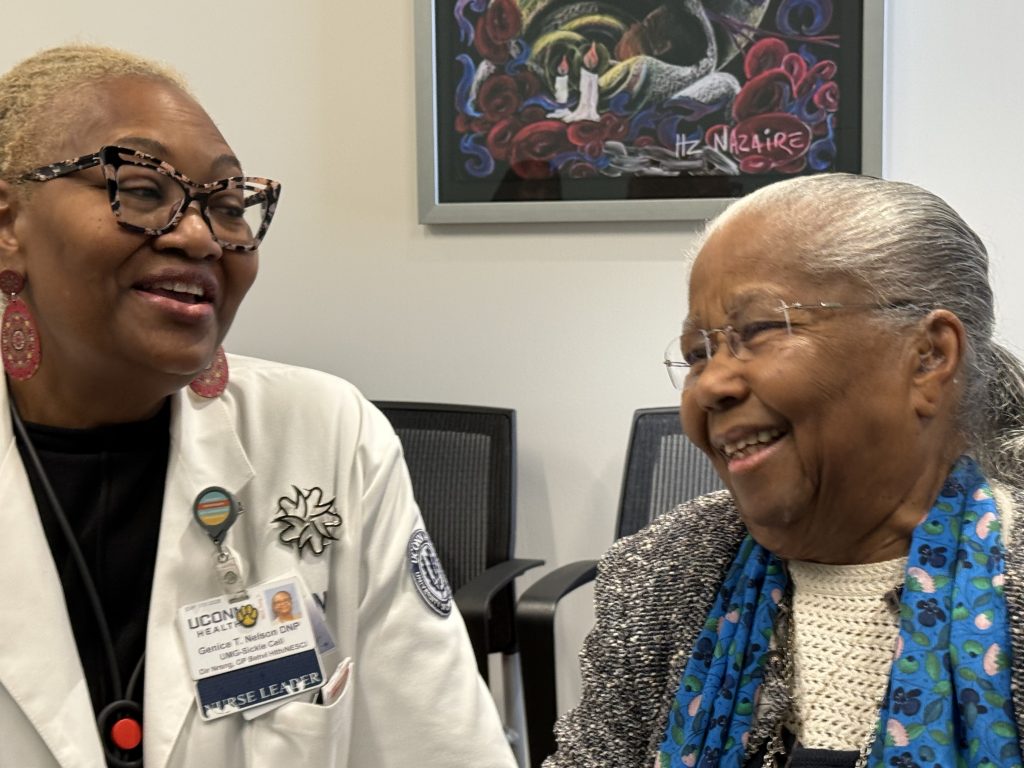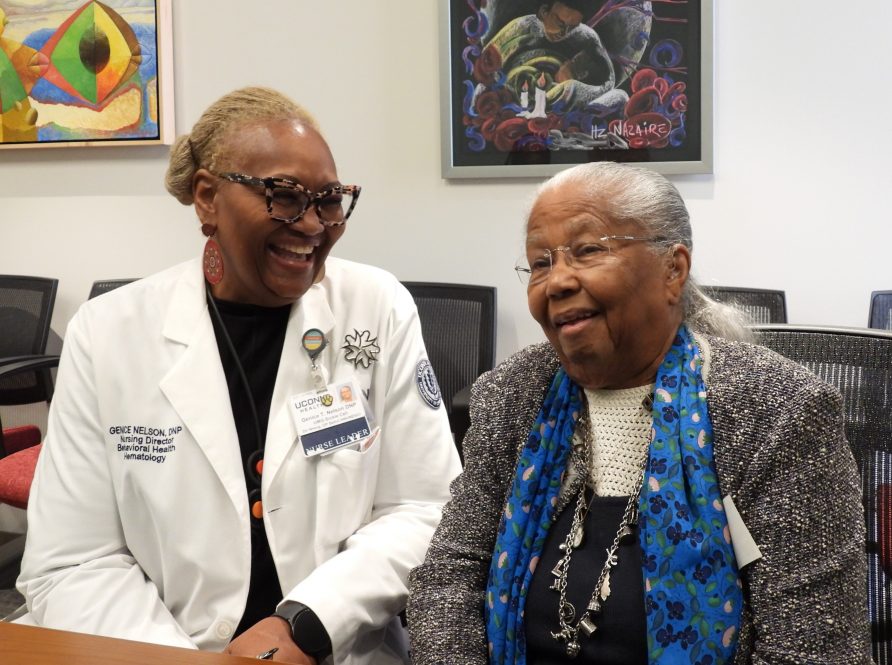Jean Martin doesn’t have sickle cell disease, just carries the trait, but as a retired teacher she knows how important it is to always make time to help others.

“I just have the sickle cell trait!” says Martin. “People need to know about sickle cell! Most people don’t know!”
This proud West Hartford resident and senior citizen, and former UConn English teacher, is not only very wise, but has a big, giving heart.
When Martin recently saw a flyer in the hallways of UConn Health during a doctor’s visit, she called the number on the flyer to volunteer to help.
She’s been a UConn Health patient since 2003 following a cancer diagnosis. In addition to being a teacher at UConn, she received her Ph.D. in English Education at UConn.
“I liked it at UConn very much!” says Martin, who also taught in the West Hartford public schools too. Coincidentally, UConn ties run deeply in her family – her husband Dr. Russell Martin was on the faculty of UConn School of Dental Medicine in Farmington.
Martin is a participant in a new clinical research study being conducting within the New England Sickle Cell Institute (NESCI) at UConn Health focusing on exploring the possible connection between sickle cell trait and early bone loss.
The new clinical research study is a collaboration between the New England Sickle Cell Institute’s director Dr. Biree Andemariam, the study’s principal investigator, the UConn Center on Aging’s Drs. George Kuchel and Richard Fortinsky, and the Division of Endocrinology’s Dr. Pamela Taxel. The study is building upon the NIH-funded research laboratory findings of UConn physician-scientist Dr. Marja Hurley who identified in her mouse research studies an increased risk for bone loss when it comes to sickle cell trait. Andemariam was co-investigator with Hurley along with others for these research investigations published in the journal Endocrinology entitled, “Loss of Bone in Sickle Cell Trait and Sickle Cell Disease Female Mice Is Associated With Reduced IGF-1 in Bone and Serum.”

The logical next step was to see if what was observed in mice with sickle cell trait is also seen in humans. Most people in the United States who have sickle cell trait are Black—a racial group that has been shown to be at less risk than Whites or Asians of developing bone loss or osteoporosis. Thus, they are not typically screened for osteoporosis as closely. But, if Black individuals with sickle cell trait have an increased risk of bone loss, this could be an important new finding that identifies a population at risk that often goes overlooked.
But to enroll in the study, you don’t need to know if you have sickle cell trait as that is part of the testing performed. Women of African descent age 50 and older are needed for the research study. Experts are trying to evaluate whether having sickle cell trait is a risk factor for the development of bone thinning, decreased physical function, and increased frailty in women of African descent (e.g. Black, African American, African, Caribbean).
Study participation simply involves a blood draw, a bone X-ray scan to measure bone mineral density and muscle mass, and non-invasive frailty/physician performance tests such as a 6-minute walk.
You can qualify to volunteer for the study if you:
- Are a woman of African descent (e.g. Black, African American, African, Caribbean).
- Are at least 50 years old.
- Have not had any menstrual bleeding in the last 12 consecutive months.
- Have no known metabolic bone disorders.
- Are not taking an investigational drug, oral contraceptives, or medications known to influence bone metabolism.
“Jean, your participation in this study is so very helpful. Thank you for helping promote research advances,” says Dr. Genice Nelson, NESCI’s nursing director. “We need to study and know if sickle cell trait affects the bone to know if earlier intervention can help with bone calcium or bone density, even if it’s as simple as adding a supplement.”

“That’s good!” agrees Martin.
According to the Institute, people like Martin who carry the sickle cell trait don’t have any presenting disease symptoms thankfully of the painful, inherited red-blood cell condition. But they are at higher risk of a very rare kidney cancer, blood clots, as well as passing the gene on to their children.
“We are always trying to get the good word out to more and more individuals living with sickle cell disease about the care available at UConn Health,” shares clinical trial research coordinator Zoe Green who is also the organizer of the NESCI’s sickle cell disease community advisory board.
“That’s good for everyone to know!” agrees Martin who always looks forward most to her son and his wife’s visits from Boston to her home in Connecticut.
Women interested in volunteering for the new study, or further information, can reach NESCI’s Zoe Green at (860) 921-3102.



